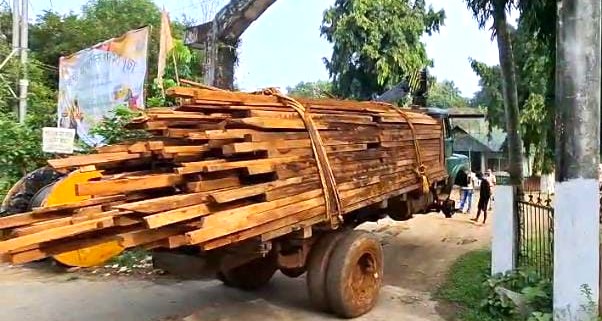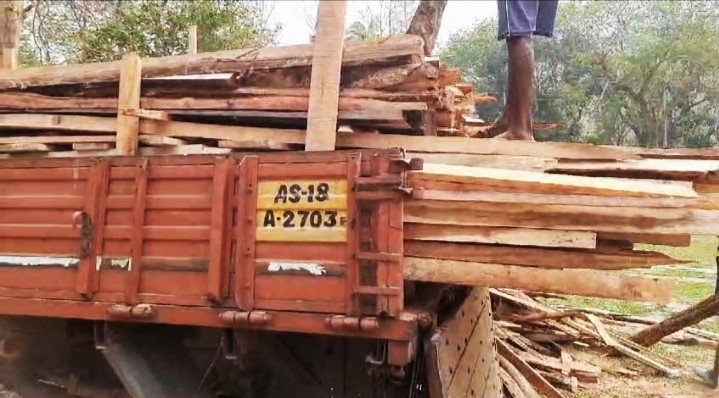Assam: Protectors turn predators as Rani timber smuggling thrives
Guwahati: A rampant timber smuggling operation, allegedly conducted with the complicity of Assam forest and police officials, has unleashed a reign of terror in Rani Reserve Forest under the Kamrup East Forest Division.
The illegal trade, reportedly patronized by personnel from the Rani Forest Range office, includes timber, coal from Meghalaya's rat-hole mines, and other goods transported across the Assam-Meghalaya border.
Sources reveal a well-organized network where forest officials allegedly collect substantial bribes to allow the smuggling.
Trucks transporting coal reportedly pay Rs 50,000 each at forest gates, while timber-laden trucks are charged Rs 15,000 per trip.
Assam: New Rail Coach Restaurant launched at Guwahati riverfront
Daily, 5-10 coal trucks and 10-15 timber trucks pass through checkpoints at Sukurberia Forest Beat, unchecked by authorities.

While Forest Range Officer Rosy Barman initially took a bold stance against the smugglers, allegations suggest that her resolve has weakened, allowing the smuggling racket to thrive.
The unchecked deforestation caused by illegal timber extraction is exacerbating environmental challenges in the region.
The loss of forest cover in Rani Reserve Forest has led to increased instances of human-elephant conflict, as displaced elephants encroach on nearby villages, destroying crops and paddy fields.
Villagers are left struggling for relief and assistance from the government.
Reports indicate that a section of senior forest officers, employees, and police personnel are actively involved in the smuggling nexus.
Allegations include the collection of large sums of money from undocumented timber factories and shops operating in the area.

Shockingly, a forest worker in the Rani Forest Range office is allegedly at the centre of the timber and coal smuggling racket that has gripped the area.
Dubbed the "master of collection," this individual is said to play a pivotal role in facilitating illegal activities, ensuring smugglers can transport goods through the forest unhindered.
According to sources, smugglers must “manage” this forest worker to gain passage for their vehicles carrying illegal timber, coal, and other goods.
It is alleged that this worker serves as an intermediary between smugglers and senior forest officials, collecting bribes on their behalf and ensuring their cooperation.
This worker’s influence has reportedly allowed dozens of trucks carrying smuggled timber and coal to pass through the Sukurberia Forest Beat daily, significantly contributing to deforestation and environmental degradation in the area.
The alleged involvement of authorities tasked with protecting forest resources has turned protectors into predators, fueling deforestation and ecological imbalance.
The district administration, police, and forest department must take immediate and strict action to dismantle this network, enforce anti-smuggling laws, and protect the dwindling forests of Assam.
The growing crisis demands public awareness and accountability to prevent further environmental degradation and ensure sustainable management of forest resources.

